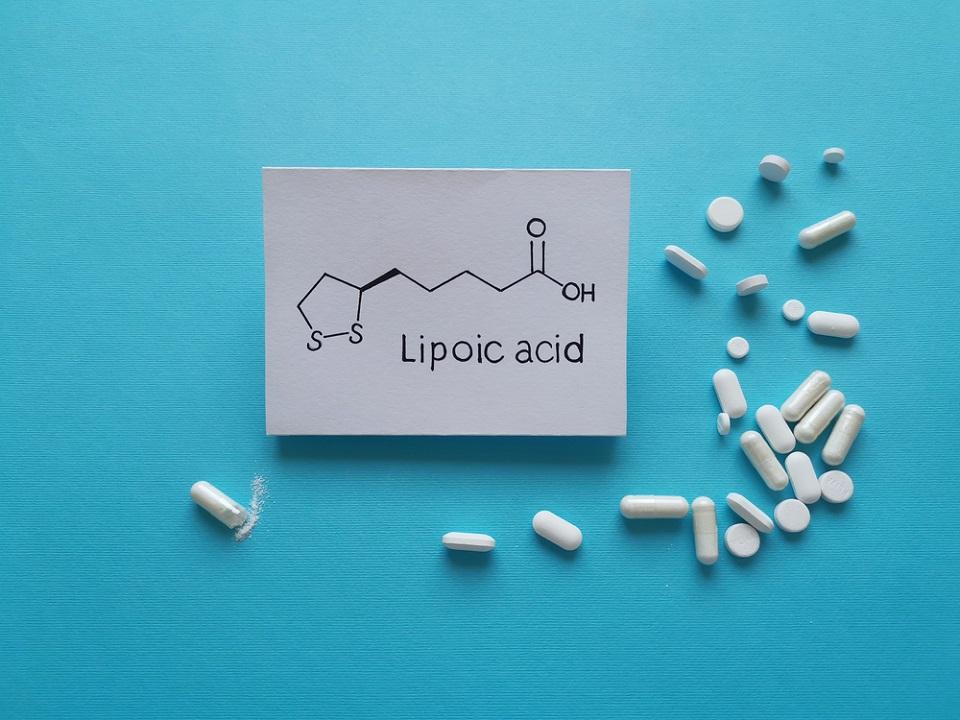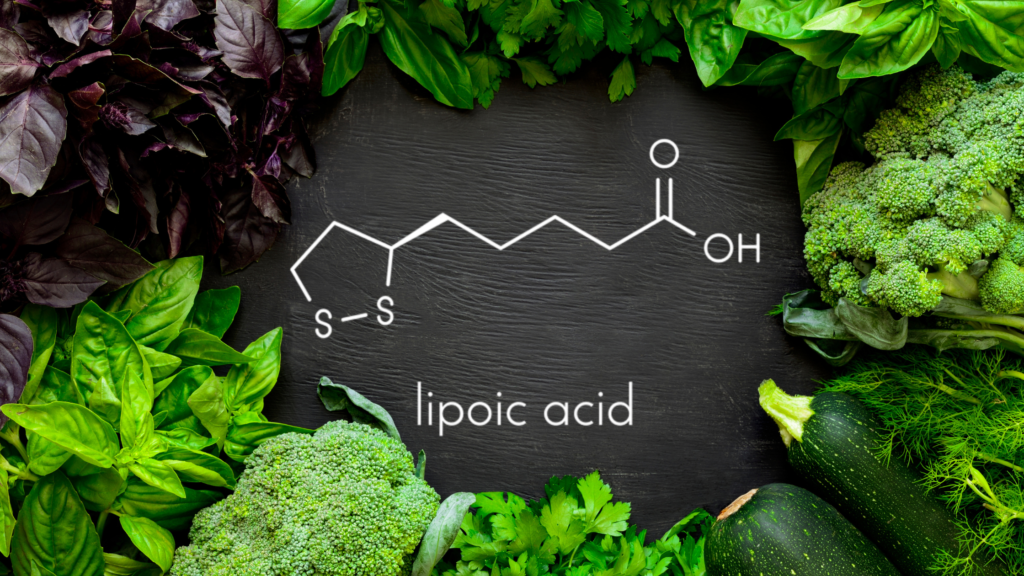Alpha-lipoic acid (ALA) is a naturally occurring compound that has garnered significant attention in recent years due to its potent antioxidant properties and potential health benefits. Often referred to as the “universal antioxidant,” ALA plays a vital role in energy metabolism and helps combat oxidative stress, making it a promising supplement in various therapeutic settings.
In this blog post, we’ll explore what alpha-lipoic acid is, where it can be found naturally, and how it’s being used to support health and manage certain conditions.
What Is Alpha-Lipoic Acid?
Alpha-lipoic acid is a sulfur-containing compound that is both water- and fat-soluble—an unusual trait among antioxidants. This dual solubility allows it to function in nearly every part of the body, from cellular membranes to the aqueous environment of the cytoplasm.
In the body, ALA is synthesized in small amounts and acts as a coenzyme in mitochondrial energy metabolism, particularly in the oxidative decarboxylation of alpha-keto acids. Because of its antioxidant capabilities, it not only neutralizes free radicals but also helps regenerate other antioxidants such as vitamins C and E, and glutathione.
Natural Sources of Alpha-Lipoic Acid
Although the human body can produce alpha-lipoic acid in limited amounts, it is also found in various foods—though typically in low concentrations. Natural sources of ALA include:
- Organ meats (especially liver, heart, and kidneys)
- Red meats, such as beef and lamb
- Spinach
- Broccoli
- Brussels sprouts
- Tomatoes
- Peas
- Rice bran
- Yeast, particularly brewer’s yeast
Because dietary intake provides only small amounts of ALA, therapeutic use often requires supplementation in higher doses.
Therapeutic Indications of Alpha-Lipoic Acid
1. Diabetic Neuropathy
One of the most well-studied uses of ALA is in the treatment of diabetic peripheral neuropathy. ALA has been shown to improve nerve conduction and reduce symptoms such as pain, tingling, and numbness. It’s commonly used in Europe for this indication, often administered intravenously or orally in doses ranging from 300–600 mg/day.
2. Antioxidant Support and Anti-Aging
As an antioxidant, ALA helps reduce oxidative stress, a major factor in aging and many chronic diseases. Its ability to recycle other antioxidants enhances its overall protective effect. Some early research suggests ALA may help reduce signs of skin aging and improve skin texture when used topically.
3. Metabolic Syndrome and Weight Management
ALA may improve insulin sensitivity and support glucose metabolism, which can benefit individuals with metabolic syndrome. Some studies also suggest modest benefits in promoting weight loss when combined with other interventions.
4. Brain Health and Cognitive Function
ALA can cross the blood-brain barrier and may help protect brain cells from oxidative damage. Preliminary studies have explored its role in neurodegenerative diseases such as Alzheimer’s disease, with some indications of slowed cognitive decline when used alongside conventional therapies.
5. Liver Support
Due to its detoxifying effects, ALA has been studied for liver health, including potential use in conditions like non-alcoholic fatty liver disease (NAFLD) and hepatitis. It may help reduce liver enzymes and oxidative damage in these conditions.
6. Cardiovascular Health
ALA’s antioxidant properties may support cardiovascular health by improving endothelial function and reducing inflammation. Some research suggests it may help lower blood pressure and improve lipid profiles.
Dosage and Safety
Typical oral supplement doses range from 300 to 600 mg per day, although some studies use up to 1,200 mg. It’s best taken on an empty stomach for optimal absorption.
ALA is generally well-tolerated, but some individuals may experience mild side effects such as:
- Nausea
- Skin rash
- Insomnia
- Dizziness
Patients with diabetes should monitor their blood sugar levels closely when using ALA, as it can enhance insulin sensitivity.

Alpha-lipoic acid is a versatile antioxidant with wide-reaching health benefits. From managing diabetic neuropathy to supporting brain and liver function, its therapeutic potential continues to grow. While dietary sources offer small amounts, supplements can be an effective way to harness its health-promoting properties.
As always, consult a healthcare provider before starting any new supplement, especially if you have underlying health conditions or take prescription medications.
Have you tried alpha-lipoic acid supplements or foods rich in ALA?
Share your experience in the comments!

